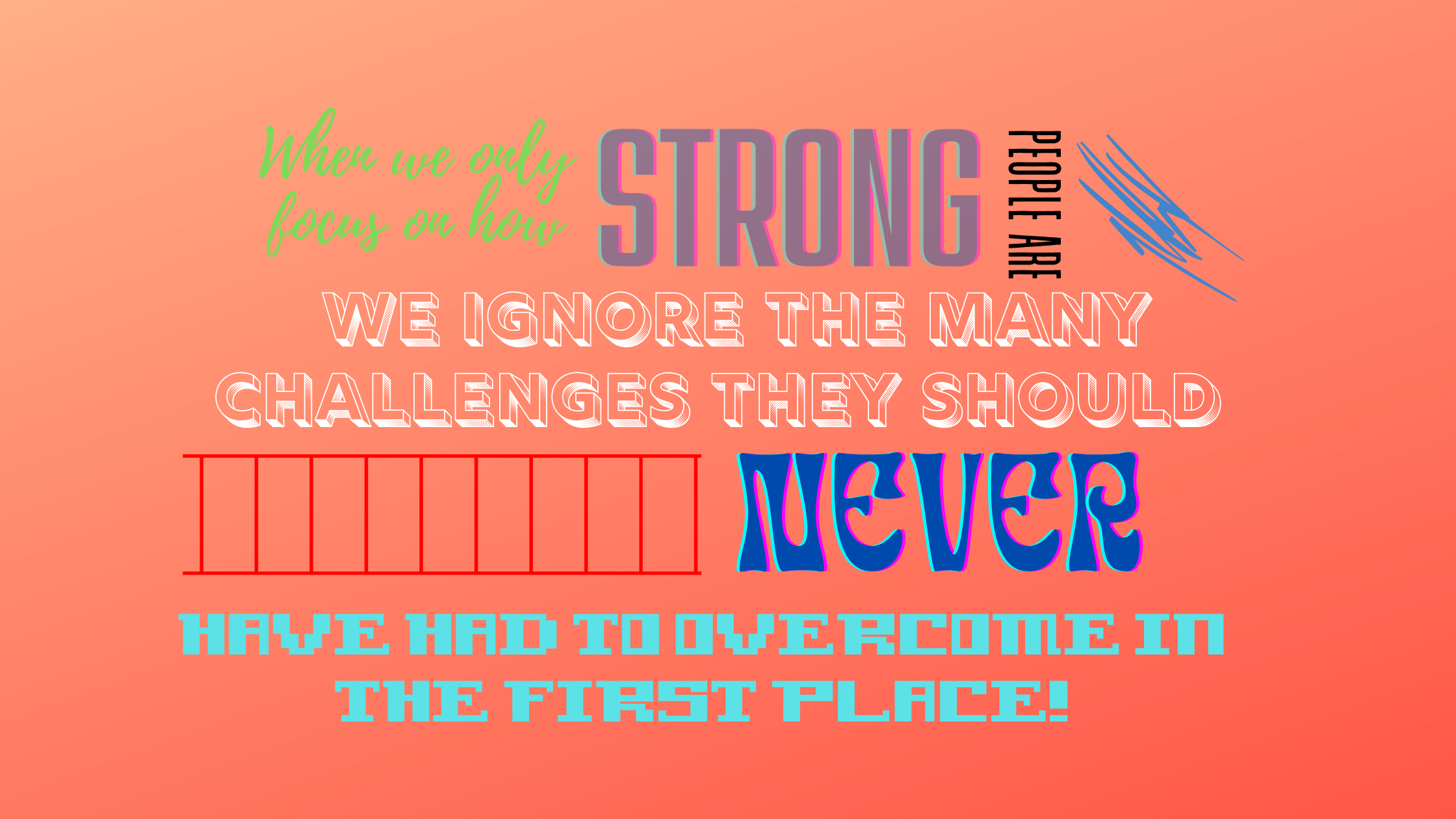The Resiliency Trap
Resiliency is a term used to describe individuals who are tough or have the capacity to recover quickly from difficulties. These people are often revered or held up as examples because of how strong they are. Many people love exploring those individuals, their characteristics and attributes through research, events and panels that celebrate resiliency - and I agree that these are some impressive people. But the way resilience is often used in academics and media is so problematic, I warn that when we only focus on how strong people are, we ignore the many challenges they should never have had to overcome in the first place!
When we focus on the resiliency of individuals, we too often overlook the systems and situations that have led to that person being harmed. We focus so much on the individual leaving no room to discuss the patterns of inter-generational damage that have happened and continue to happen. When you are tempted to admire the resiliency of an individual, I encourage you to dedicate an equal amount of time, energy and attention to answering these questions:
why did that individual have to be strong in the first place?
how were their needs not being met that required them to be so resilient?
what systemic barriers existed and continue to exist that result in people having to innovate or find new solutions?
If there is a history of resilient individuals, is there a history or pattern of systemic harm or neglect?
Resilient People
I talk a lot about the village, and when I do I am referring to the resilient individuals who have innovated so that they can meet their own basic needs and those of the people around them. When I think of simple childhood development and human needs from a social perspective, I totally understand why beautiful initiatives like Mama Bear Clan, Anishiative and Fearless R2W exist in Winnipeg’s North End. These leaders are bringing people together to create safety and community and to remind people how they deserve to live a good life. It is beautiful.
But what about the resiliency trap?
Re-read the above paragraph again. Did I fall into the trap? I did. So let me fix it by dedicating an equal amount of time an energy into explaining the systems and challenges they are fighting against:
All of these initiatives exist in the North End, a geographical location that has a history of low income and housing insecurity - this is not by accident and successive governments and leaders have failed to address it. Mama Bear Clan takes care of our relatives who are food insecure and our relatives who sleep on the streets and people who use drugs with their supports. Anishiative engages young people in the North End to clean up the litter and also encourages connections with teachings of responsibility. Fearless R2W will again be advocating for families involved in the child welfare system in the near future as many families, especially in the pandemic are struggling with visitation and reunification plans.
There is a lot of work to do and these 3 grassroots groups are trying to bring volunteers with lived experience to create solutions and address patterns of systemic neglect. I appreciate whenever we lift up leaders who are doing amazing things in our community but I want all of us, and institutions especially, to help those leaders achieve the system change they’re working towards. In that way, we don’t fall into the resiliency trap.


